Have you been getting too many direct customer support requests lately and wished you could keep the volume to the bare minimum? Welcome to the future, where customer self-service portals are transforming how businesses and customers interact!
Self-service portal lets customers conveniently and efficiently access the information they need to resolve issues on their own. Your customers are happy as they feel in control and satisfied. Meanwhile, your support team avoids attending to certain requests and focuses on other important business activities.
In this article, you’ll learn everything about the self-service portal and 8 top picks for 2024. Plus, we’ll let you know how to create your own self-service customer portal using Clinked.
Let’s get started!
Table of Content
- What is a Customer Self-Service Portal?
- Why Use a Customer Self-Service Portal?
- Must-Have Features of Self-Service Portals
- 8 Top Customer Self-Service (Centers) Portals
- How To Make A Self-Service Portal Using Clinked
- Wrapping Up
What is a Customer Self-Service Portal?
A customer self-service portal is an online page – or web portal - where customers can find solutions on their own to issues encountered while using your products, services, or dealing with your businesses. It could also be a page where they can find guides on how to perform certain tasks without the help of a human support agent. Self-service customer portals examples can be FAQ pages, billing dashboard pages, and community forums, to mention a few.

A FAQ web page, for example, contains answers to commonly asked questions, such as what a business or its product/service is about, how orders and payment are processed, what and what is not offered in an offer, etc. If a customer has this question, the page answers it, and they wouldn’t have to leave Support a message.
All in all, a customer service portal is a crucial feature that your website, app, or digital-based solution should incorporate to save both your customers' and your support team's time.
Why Use a Customer Self-Service Portal?
It shows you respect your customers’ time by having a self-service portal like a FAQ page where they can find what they want. Don’t make them spend time calling the support line or drafting an email on an issue a 5-minute video or 50-word text answer would resolve.
You not only save your customers time but also free up your in-house team’s time. Less incoming support interactions means your employees or tech team can focus on other important business activities. This is especially important for startups as too many service requests that could have been otherwise avoided with a self-service channel may take a toll on time resources. Even mid-size and big businesses have to conserve their human resources.
A self-service support channel also means transparency and makes for trust. A missing help center might make a prospect think your business is hiding something because they’re used to other businesses having at least one. Having a portal or page where prospects and customers can get help sans a live human agent boosts your business’ credibility and trustworthiness.
Must-Have Features of Self-Service Portals
A customer self-service channel can have extensive functionality or be narrowly focused. It all depends on the specific goals you want the portal to achieve. Below we discuss a mixture of factors and functions, which are all features to consider before committing to any self-service customer portal solutions for your website or app.
- User Interface: The portal should be intuitive and user-friendly. Taking into consideration this factor would mean a seamless self-service experience for the customers.
Ask yourself if the search bar, navigation menu, and buttons are strategically placed in the right places. Does it have multimedia support, meaning it can let you store videos, downloadable documents, and more? Does it provide a tagging option so your customers can easily navigate between two or more related content? Does it allow users to rate articles or leave feedback so your team backend can know what content is or is not helpful?
A well-structured self-service portal makes it easy for customers to find the information they need or perform the required action.
- Your Employees in Mind: It’s easy to get carried away by customer-centric pursuits. But do not forget your customer support personnel, IT department, or portal management team are humans, too, and need to be cared for.
So, consider how usable and quick it is to master the portal solution. Employees will be responsible for managing the portal so customers always have fresh and updated content to help themselves with. Other responsibilities of your management team would be interpreting the data from how customers interact with the portal. So again, keep them in mind.
- Integration With Other Apps: Especially for a business with complex operations where links with other business apps must not be broken, ensure the portal can function as a part of your comprehensive customer support strategy, not a lone tool.
Integration, for example, would mean a customer can effortlessly make a switch from a self-service option to direct support without any disruption.
Another way a portal can sync well is to have the means to let another business app collect and utilize data gathered from customers’ searches and interactions. This information can be used to inform future content that will be uploaded to the portal.
- Knowledge Base: Can the portal provide you with a searchable database of FAQs, articles, PDFs, product manuals, or videos that customers can utilize to troubleshoot issues and perform certain tasks? Think of it as an online library with guides categorized into different folders or based on themes.
It’s worth noting that a knowledge base mustn’t contain all the resource types but only information pertinent to your business and its users.
- Account Management: Can customers self-manage their accounts? Account management activities can range from viewing transaction history and making changes to personal information such as contact address to managing active or pending services or subscriptions.
- Payment and Billing: Depending on the type of business you run, customers may need a portal on your web page or app where they can receive and view payment invoices, make payments, review billing history, subscribe to services, cancel subscriptions, update payment records, set up automatic billing, etc.
- Community: Forums are a valuable self-service tool that businesses use to encourage community building and to boost their fan base. Community forums give customers a platform to respond to other customers needing help with a particular product, service, or information about the business. Also, prospects ask questions and have them answered by existing customers or someone from your business.
- Hybrid Solutions: Hybrid portals combine two or more portal types in one solution for a more comprehensive and seamless self-service experience. A hybrid solution may include a knowledge base, community forum, live-chat support, and more in its system.
Above are just some general features you’d seek out in a self-service customer before committing to it financially. Make sure you settle for a portal that can resolve a range of customers’ issues without having to involve a customer center agent.
That said, let’s consider some self-service portal examples, the top 8, that you can use in your business environment for happy customers and a happy support team.
8 Top Customer Self-Service (Centers) Portals
Want to know the customer self-service companies that businesses are using to enhance their customer support experience? Pick from the multiple options below regarding your business operation, features required, and budget.
1. Clinked

Clinked is a client portal software that doubles as a self-service customer portal. The portal offers an online gateway where client-facing businesses such as financial organizations, medical practices, and legal firms can provide clients with personalized information, documents, and customized services in a centralized location.
With Clinked’s collaboration and communication features, the portal functions as both a client portal and a customer self-service solution.
The client collaboration part, for example, lets you share sensitive files, such as financial documents, with clients on a secure portal. General knowledge base articles and content are also taken care of with Clinked. Simply create from your dashboard a dedicated Help Center or FAQ page and host text content and visuals like how-to videos.
In terms of collaboration, Clinked provides tools and functions within the wall of its solution where employee-employee interaction and team-client collaboration can take place. Clinked uses Zapier for integration with your everyday business apps, such as Google Sheets, Slack, Trello, and Google calendar.
Features:
- Knowledge base
- Customization
- Integration with common business apps
- Collaboration and communication models
- Secure file sharing between employees and clients
Pricing:
- Lite at $119/month
- Standard at $299/month
- Premium at $599/month
2. HubSpot Service Hub

Hubspot Service Hub - Knowledge Base Feature
As one of the industry leaders in customer relationship management solutions, HubSpot offers a suite of SaaS tools, including Service Hub. The Hub is designed as a self-service portal solution for businesses of different sizes. It offers a knowledge base, help desks, live chat, and ticketing options. Upload and store commonly asked questions in the knowledge base and tag them for easy navigation. In cases where the guides and articles in the repositories aren’t enough, a customer can use the live chat feature, so they don’t have to go through phone or email channels.
Service Hub integrates with HubSpot CRM, which makes for a comprehensive view of all customers’ interactions with your website. This integration is perfect for those looking for a customer self-service solution and a CRM that integrates.
Features:
- Knowledge base
- Live chat for real-time support
- Reporting and analytics
- AI-powered chatbots
- Call tracking
- Help desk and ticketing
- Multi-channel messaging
Plans:
- Free at $0/month
- Starter at $20/month/seat
- Professional at $100/month/seat
- Enterprise at $130/month/seat
3. LiveAgent

LiveAgent is one of the help desk portal examples that has built-in customer self-service features. From your dashboard, LiveAgent lets you write articles, how-tos, and guides for questions and issues to help your customers help themselves.
A centralized ticketing system pulls together incoming tickets from social media mentions, chats, emails, calls, and other channels and routes those incoming support requests to the appropriate support agents based on predefined rules. Customers have a dedicated dashboard to view, track, and manage all their support tickets.
Install LiveAgent’s widget on your website to encourage conversations and resolve issues. Plus, it’s customizable to match your branding needs. LiveAgent claims that the website widget can help increase your revenue by 48% based on its advanced features.
LiveAgent lets you create a community forum for peer-to-peer support which can reduce incoming support requests. There’s a growing trend towards community-based support channels such as forums because a lot of customers want to get recommendations and solutions from individuals who have in the past used or are currently using a product or service.
You can choose a LiveAgent subscription based on features that are most important to your business now, and you can scale later as you grow.
Features:
- Knowledge base portal
- Robust ticketing system
- Integrations with popular apps, such as Slack, WhatsApp, X (formerly Twitter), Google Analytics, and more
Pricing:
- Free at $0/agent/month.
- Small Business at $15/agent/month
- Medium Business at $35/agent/month
- Large Business at $59/agent/month
- Enterprise at $85/agent/month
* The/agent billing structure refers to the number of support personnel who have access to the LiveAgent’s platform on your subscription. If you are on the Small Business plan and have two support agents on the plan, your monthly cost will come to $30. You can get a discount on all plans if you pay annually.
4. Zoho Desk

Zoho Desk is one of the self-service portal examples with impressive features for customer self-service. First, the Help Center features a knowledge base where you can post articles and guides for frequently asked questions. If you want exclusive access to your knowledge base, you can require viewers to set up accounts before they look up an article or guide. The knowledge base features a search and rating function to help users sort through content and leave feedback.
Zoho Desk lets you build a community forum so customers can get answers from your team as well as other customers.
Guided Conversations in Zoho Desk is an AI customer support chatbot feature that uses a preconfigured framework to guide customers to the best resources or answers to their questions. If you don’t know how to configure the feature, there’s a GUI builder and a library of templates to help you create your own workflow.
The use of a structured and predictable interaction flow helps provide customers with related resources they may never find on their own if they were to use regular searches.
Other features many businesses will find useful are Contextual Support, work Modes, and Advanced Reply Editor. Contextual Support helps simplify repetitive tasks. Work Modes helps support agents to organize and respond to tickets based on customer type and other information. Advanced Reply Editor helps agents avoid repetitive tasks. With it, support agents can use prefilled templates to make their work fast and easy.
Zoho has lots of small business and enterprise-level features to help provide self-service for clients and customers.
Features:
- Searchable and rating-enabled knowledge base
- AI-powered bots and tools
- Customization
- Impressive ticketing options
Pricing:
- Standard at $20/business/month
- Professional at $50/business/month
- Premium at $100/business/month
5. Salesforce Service Cloud

Service Cloud is part of Salesforce’s CRM suite of products designed for customer self-service. With easy access to articles, FAQs, documents, and other materials, use the knowledge base to give your customers answers and solutions to their issues without involving a live human agent.
A feature called Contracts and Entitlements keeps records of service contracts such as subscriptions, warranties, and maintenance agreements unique to each customer. Your support personnel can then use this information to determine and prioritize the type or level of support customers deserve.
The forum feature lets you have a community portal where customers can interact with one another for recommendations and suggestions on any aspect of your business, including what product or service to buy, their experiences, and more. You can assign employees or a team to regularly respond to questions coming from customers and prospects alike. This makes for better engagement and can make customers stay around for a long time.
Responding to customer complaints on social media platforms on time is crucial to customer satisfaction and customer loyalty as most prefer businesses that prioritize their needs. The Social Customer Service feature integrates social media channels such as Facebook and X (formerly Twitter) into Salesforce. Not only does this feature let the service team monitor in real-time customer inquiries and complaints, but it also converts the social media interactions into tickets that can be tracked, prioritized, and managed within Salesforce.
Other similar features your business may find useful are Salesforce Chat (formerly called Salesforce Live Agent) and Telephony Integration with Amazon Connect or other cloud-based X partners. The former installs into your app or website so your service team can have 1:1 chat with customers outside of social media. The latter lets customers call directly from the chat feature and your support team make outbound cloud calls from Service Cloud.
Features:
- Knowledge base support.
- Analytics.
- Complaint management.
- Service Entitlements.
- Live Agent.
- Social Customer Service.
- Customer community.
Pricing:
- Starter Suite at $25/user/month.
- Professional at $80/user/month.
- Enterprise at $165/user/month.
- Unlimited at $330/user/month.
- Einstein 1 Service at $500/user/month.
6. Help Scout
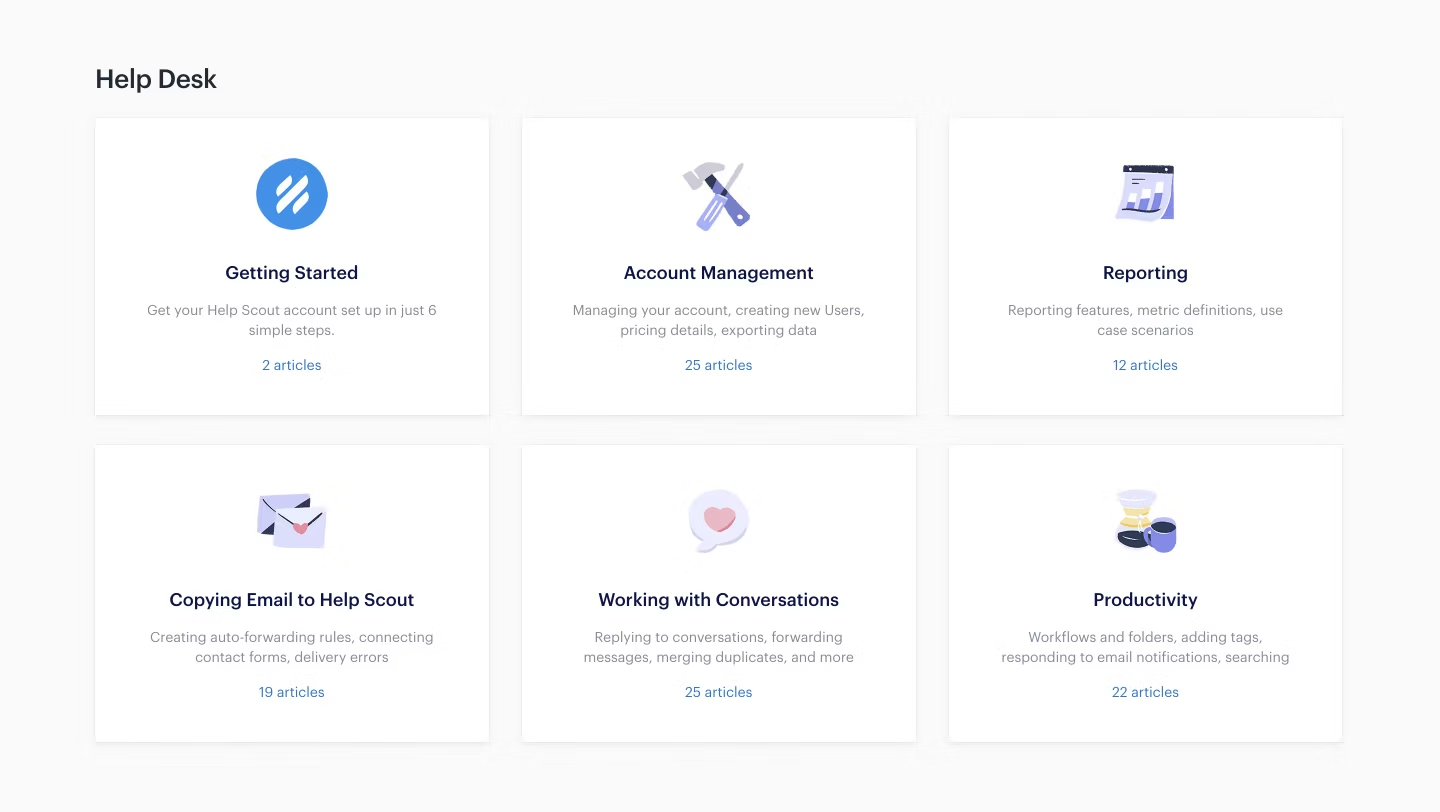
Help Scout is a customer support platform that offers two main customer self-service tools: Docs, a knowledge base function, and Beacon, a widget that makes it faster and easier for customers to interact with content on the knowledge base page.
Docs lets you build a robust knowledge base of articles, guides, and other content where customers can find answers. Taking self-service a step further is the Beacon widget that gives customers the option to chat or email support.
If a user wants to read help instead of chatting with support personnel, Beacon can suggest articles, FAQs, or other content related to what they’ve read. This way, the customer gets as much information as they need without needing to reach out to support teams. The widget also tracks user activity where you install it, be it on your web page or app, to gather trends that can inform the work and decisions of support managers and leaders.
Features:
- Knowledge base.
- Website or App widget for easy Help Center navigation.
- Real-time notifications.
Pricing:
- Standard at $25/user/month.
- Plus at $50/user/month.
- Pro* at $65/user/month.
* Pro plan is only available on an annual subscription.
7. Intercom

Intercom is an AI customer conversational relationship platform (CRP) designed to help businesses interact with their customers through live chat, email, and other messaging channels. The customer service platform is built on a single AI framework (Fin) and has three major features: AI Agent, AI Copilot, and AI Analyst.
Fin AI Agent uses sophisticated AI language to answer customer questions in a conversational style. It pulls content from your knowledge base articles, certain pages on your website like the pricing page, PDF files, or preset custom answers. With preset rules, you can decide from where the AI can retrieve information it serves customers and how it does. Intercom promises a seamless setup even if you don’t have coding experience or can’t set up complex integrations.
It’s unlikely that your support team will have up-to-date answers to every question a customer could ask. With Intercom’s AI Copilot, every agent gets a personal assistant to not only find information but also complete certain tasks.
For support managers and leaders, the third AI component of Intercom – AI Analyst - provides them with insights on how to better go about customer service. Every session with a customer means new data from which the AI can provide insights. For businesses looking for a simple yet effective customer service solution, Intercom might be worth looking into.
Features:
- Knowledge base/help center.
- Supports conversation from multiple channels and pulls them into one place.
- AI Agent for customer self-service.
- AI CoPilot for support agents.
- AI Insights for support leaders and managers.
Pricing:
- Essential at $39/seat/month.
- Advanced at $99/seat/month.
- Expert at $139/seat/month.
8. Freshservice

Freshservice is one of the help desk portal examples used by businesses and institutions to provide self-service for their customers and employees. Powerful AI chatbots and tools can answer user questions, update records, and perform other tasks. Powered by Freddy AI, Freshservice offers 3 self-service AI tools: Self-service, CoPilot, and Insights.
The self-service tool deploys artificial intelligence backed chatbots to resolve issues. Employees can ask Freddy for help from within Slack, Microsoft Team, or other channels your business uses. With Freshservice’s knowledge management, employees can find answers to their own issues from the knowledge base portal without contacting the technical department.
For cases that cannot be resolved over the help center, Smart Suggestions in the portal helps technicians find replies to suggestions (solutions) that can be attached alongside ticket responses with just a click of a button.
When using Freshservice for customer service, the Freddy-powered chatbot gets customers with tailored responses to their inquiries. Answers are pulled from knowledge base content.
If you’re looking for a self-support portal that also functions as an employee self-service tool, you might want to check Freshservice if it will be right for your business needs.
Features:
- Knowledge base for employees, customers, and tech support
- CoPilot for IT staff
- Freddy AI Insight for support managers
- AI-powered chatbots
Pricing:
- Starter at $29/agent/month
- Growth at $59/agent/month
- Pro at $115/agent/month
- Enterprise at $145/agent/month
How To Make A Self-Service Portal Using Clinked
Self-service customer portals no doubt have their place in customer relationship and satisfaction. You get to provide customers with the help they need without burdening your support team.
Clinked – a client portal provider – takes self-service customer portal solutions a step further by providing online-based platforms for client-facing businesses of different sizes and in different industries.

With Clinked, you can create a customer portal where you can share files with clients, for example, paperwork, medical records, sensitive files, appointment schedules, feedback, and more in real-time.
If that sounds like something your business can benefit from, we invite you to make a client portal with us. A portal with us also gives you access to its unique customer self-service features. We do not only provide portal solutions for healthcare businesses but also accounting firms, marketing and advertising agencies, and other client-facing establishments. With our solution, you get a branded portal that:
- Features a knowledge base with text content, instructional video guides, and other visuals that allow clients to self-serve.
- Provides standard and white-label customizations for a unified and coherent brand look and feel.
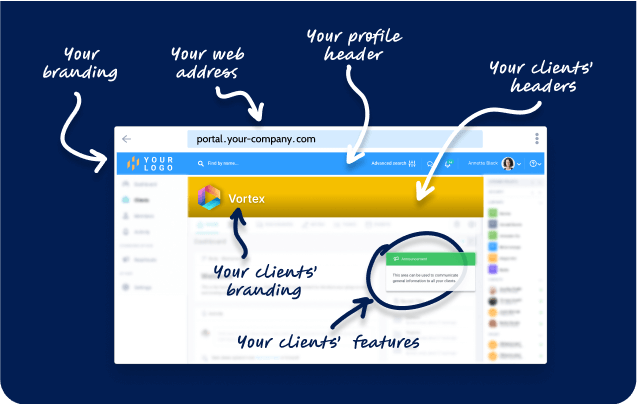
- Integrates with Slack, Google Sheets, Trello, Google Calendar, and other everyday business productivity apps.
- Facilitates collaboration and communication between clients and business teams.
- Offers secure file sharing between clients and the business.

Contact us today at Clinked to see how our team can help set up your 2-in-1 client and self-service portal. We can customize your portal solution to have just the tools and features your business needs. You pay what your business can afford and upgrade as you grow.
See how you can create your own customer portals in a few easy steps!
Wrapping Up
Customer self-service portals aren’t phasing out soon – they’ll only get better with time! So now is the time to leverage this powerful customer interaction tool to help your customers find answers and solutions at their convenience while reducing the burdens of direct support interactions received by your support team - a win-win for both parties.
Remember Clinked can help you build a customized client portal that doubles as a self-service customer portal.


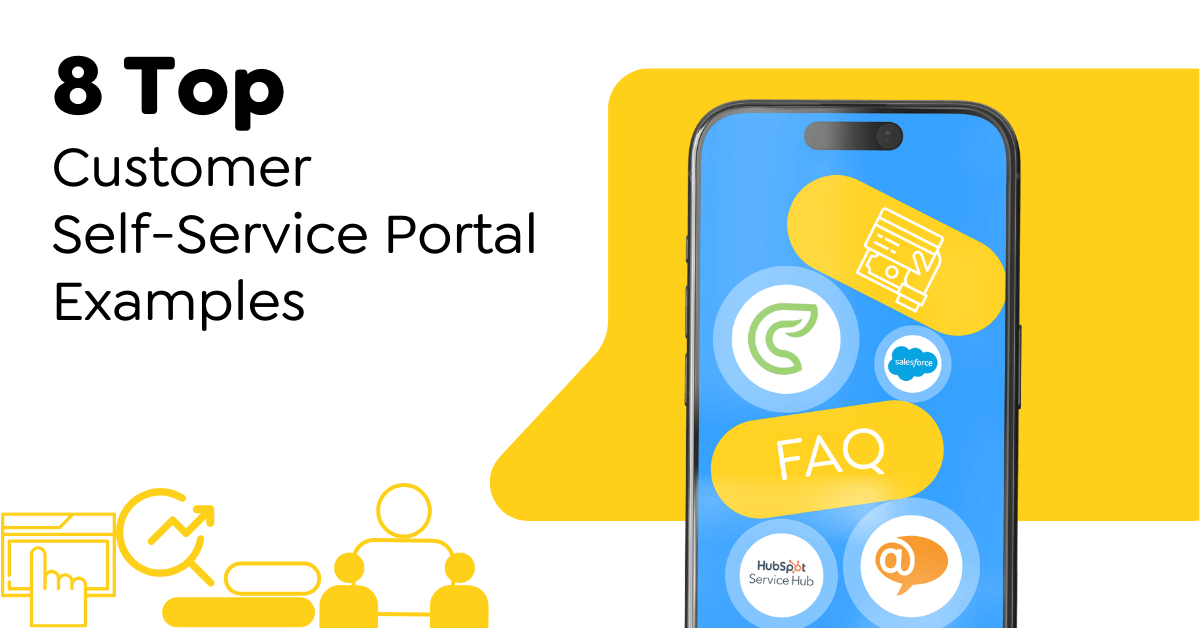


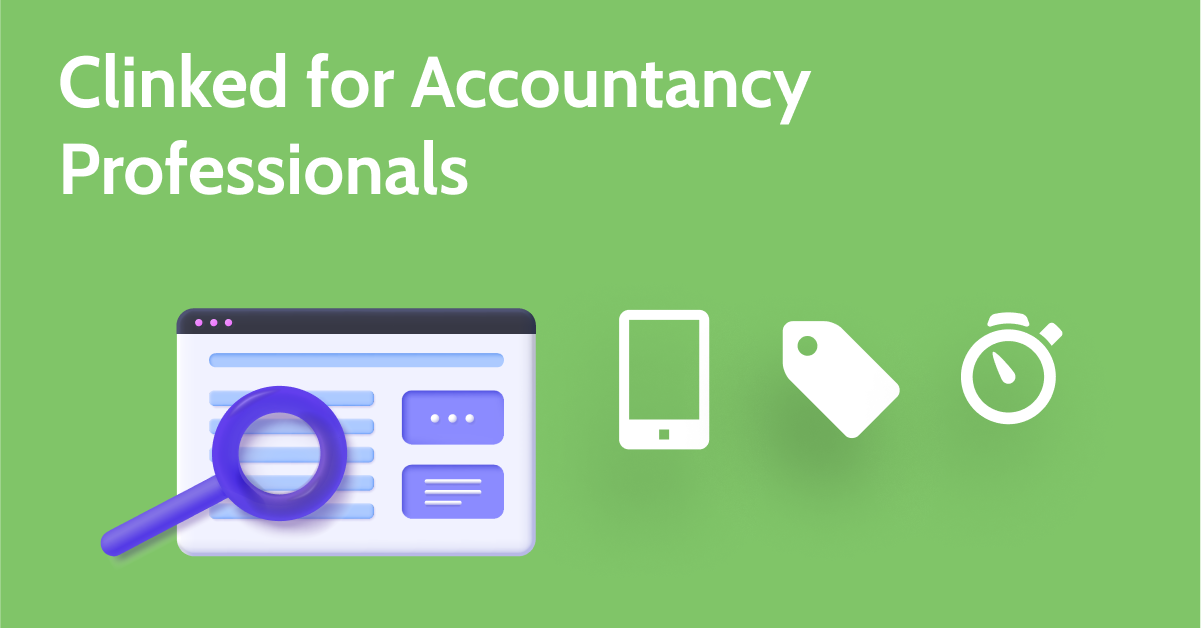

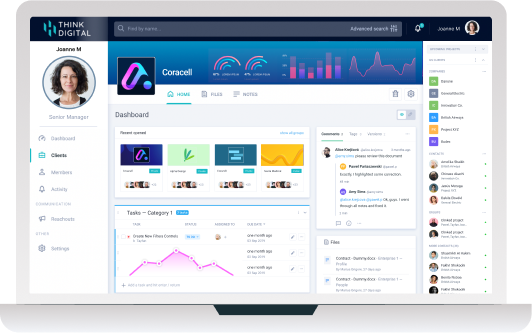

Let Us Know What You Thought about this Post.
Put your Comment Below.